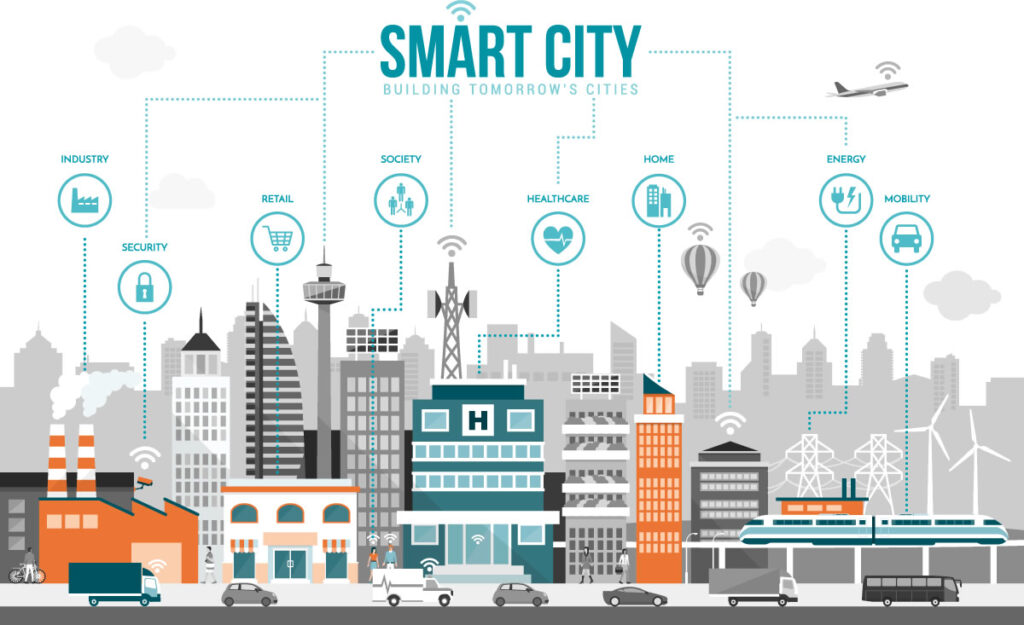Why do we need Smart Cities?
According to the United Nations, urbanisation continues to be one of the defining trends of the 21st century. It is estimated that by 2050, two-thirds (68%) of the global population will be living in cities. The reality is that many cities around the world are struggling with the challenges of growing inequality – and the continued difficulties in creating and shaping sustainable and liveable spaces.
Despite these challenges, cities have always been, and remain drivers of opportunity and prosperity for individuals, organisations and countries. Cities are also critical to leading local, national, and global innovation; driving progress toward a ‘new normal’ and leveraging the benefits of urban spaces for public health and are the foundations for building more inclusive, liveable, and sustainable environments. We have come to call these ‘Smart Cities’
What Makes a City Smart?
The main goal of smart cities is to optimise city functions and promote economic growth while also improving the quality of life for citizens by using smart technologies and data analysis. The value lies in how technology is used rather than simply how much technology is available.
A city’s smartness is determined using a set of characteristics, including:
- An infrastructure based around technology : blockchain, IoT, Machine Learning & AI
- Environmental initiatives that improve the liveability within the Smart city
- Effective and highly functional public transportation: autonomous vehicles?
- Confident and progressive city plans
- People able to live and work within the city, using its resources
The European Commission states that “A smart city goes beyond the use of digital technologies for better resource use and fewer emissions. It means smarter urban transport networks, upgraded water supply and waste disposal facilities, and more efficient ways to light and heat buildings. It also means a more interactive and responsive city administration, safer public spaces, and meeting the needs of an ageing population.”
Singapore Leads the way…
Singapore was elected the smartest city in the world and leads the hit list!
Since 2020, Singapore has been home to the first industry-led smart city lab in Southeast Asia. The Smart Urban Co-Innovation Lab consisting of more than 30 companies, such as Amazon Web Services, Cisco Systems, and Schneider Electric, collaborating with local tech start-ups and international partners to further develop smart city technologies. Smart City projects were created and deployed in all aspects of life, for example, by:
Using an autonomous fleet to help older people or those with limited mobility move around
– Adopting robotics and AI-powered chatbots talk to the elderly to provide relevant information and reduce loneliness
– Digitising the healthcare system that, amongst other things, allows for TeleHealth video consultations and TeleRehab
– Providing apps that enable to hail self-driving vehicles, access information tailored to specific demographics, and receive location-specific environmental alerts
– Gather citizens perceptions and insights using Hello Lamp Post’s communication participation technology
What’s Next?
Now that you have a very basic understanding of what a Smart city is, I will be writing more about how the technology is applied to bring Smart cities to life… so stay tuned!
… Marcus
